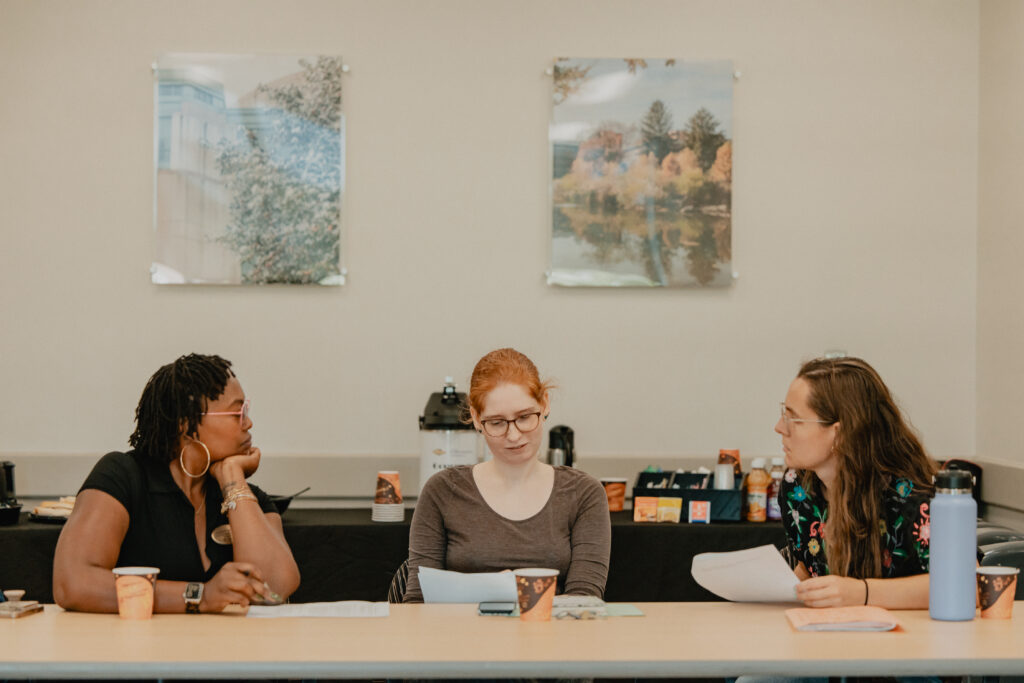
Recently, Inside Higher Ed reported that students are hesitant to engage in difficult conversations around challenging topics, especially issues related to identity, social experiences, systemic injustice, and more. We aim to help faculty, staff, and students do just that.
At the Center for Social Justice Dialogue, we embrace the following cornerstones of practice to support our effort to foster inclusive excellence at UMBC:
Dialogue as Pedagogy: We utilize dialogue as a fundamental educational tool, encouraging open conversations that promote critical thinking and mutual understanding among diverse perspectives.
Circles Are the Way: Our approach incorporates circle practices, creating equitable spaces where every voice is valued and fostering community and shared learning. Using circles and virtual circles helps us to balance power dynamics, cultivate safety for vulnerability, keep people in community, and honor indigenous ways of being.
Decolonized Approach: We challenge traditional power dynamics by integrating decolonized methodologies, honoring Indigenous knowledge systems, and promoting educational sovereignty. This is grounded in Freire’s (2017) Teacher-Learner philosophy, where we believe we will learn from students and participants as much as they will learn from us.
Inviting Others In: We actively invite ALL community members to participate, recognizing that diverse contributions enrich our collective experience and strengthen our commitment to inclusivity. In this effort, we assume conflict or conflicting views and seek to create a safe enough environment for participants to bravely disagree while developing empathy and understanding for other perspectives.
Radical Love and Belonging: Our foundation is radical love, and we cultivate environments where individuals feel a profound sense of belonging and are empowered to express their authentic selves.
Radical Imagination and Action: We encourage the bold reimagining of equitable futures and support transformative actions that challenge systemic injustices, aligning with our mission to create a loving and just world.
These principles and approaches guide our efforts to create a campus culture rooted in equity, empathy and shared responsibility.